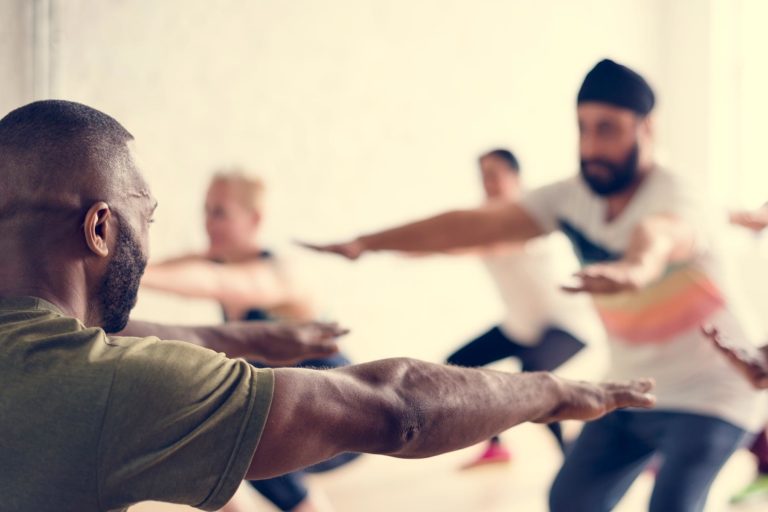You probably know that physical health can affect your mental health and wellbeing. But did you know that it also works the other way around? Quite simply, your stress levels, how well you deal with things, and how you feel day to day can significantly affect all aspects of your life — including your physical health. If you’re not feeling 100 per cent mentally, then chances are your physical health will also be a bit out of shape. That’s where mental fitness comes in.
What is mental fitness?
Many blokes include regular physical exercise as part of their routine, yet they do little to keep their mental health in working order. In fact, looking after yourself mentally is just as important as exercising, eating well, and watching your intake of alcohol, tobacco and other potentially harmful substances.
So what is mental fitness? Basically, it’s another way of taking care of yourself and your mental health. It’s not about training your brain or solving puzzles. Rather, it’s about taking a bit of time out to keep things running smoothly upstairs. Working on your mental fitness builds your inner strength and resilience, preparing you to deal with life’s stresses and difficulties.
In the same way that caring for your body can help prevent disease, so too can looking after ‘head health’ help shield you from life’s worries and stresses.
The mental fitness routine
The best way to deal with mental health concerns is to take preventative action to stop them from happening in the first place.
So, what does prevention look like? An easy way to take action is to get into a ‘mental fitness’ routine. Here are some great ways to get you started.
1. Taking ‘chill time’
A quick break from the busy hustle of daily life can help you adjust, calm down and see things in a better light. It’s remarkably simple and yet it can benefit your mental fitness.
- Frequency: Daily.
- Reps / sets / duration: 10 minutes to an hour
- Technique / form:
- Find a space free from distractions (including your phone). Get comfortable and just be alone with your thoughts for a few minutes. Don’t think about what to do or what’s been done right or wrong. Just go about it and chill out.
2. Time with mates and family
Time spent with the people who are most important to you has been repeatedly shown to benefit your wellbeing. In fact, it’s even thought to contribute to greater life expectancy. Hanging out with ‘our people’ lets you take time out, talk about what’s going on in life, and even vent or just have a good laugh.
- Frequency: Weekly or fortnightly, whatever you can reasonably manage.
- Reps / sets / duration: Anywhere from an hour to a day or two.
- Technique / form:
- Make a list of the people that you like hanging out with (even if it’s been a while). Make sure they’re the people who make you feel good, whether it’s your partner, a good mate, your children, your parents or even old friends.
- List them in rough order of importance. Don’t stress about how important they ‘should’ be but go with how they make you feel after you normally spend quality time with them. The better you feel afterwards, the higher on the list they should be.
- Find time to hang out. Try to find more time if they’re in your top three list.
- Get in touch and meet up. Once you’ve seen them, making it a regular catch-up gives you something to look forward to.
- Social connections are one of the most important things you can do for your mental fitness. So, try not to let it slip.
3. Hobbies
- Frequency: Daily if possible, weekly at minimum.
- Reps / sets / duration: 10 minutes minimum.
- Technique / form:
Find some space and time to do what you love, whether it’s gaming, handiwork, music or reading. Little things that are enjoyable tend to bring more happiness and satisfaction to life, even if you only get to spend short periods doing them.
Of course, you should consider capping the amount of time and money you spend on your favourite hobbies if they’re expensive or can get just a little bit too addictive. Otherwise, they’re a healthy pursuit.
You’re likely to feel better, build mental fitness and as a bonus, have a regular little slice of ‘me time’ to look forward to.
4. Task-based mindfulness
Mindfulness is getting a lot of press nowadays. It may seem a ‘bit hippy’ but mindfulness is actually an effective technique that can help improve your concentration, memory, general calmness, along with other mental health benefits.
Mindfulness is simply the act of paying attention and focusing on the present moment. Whereas some people find meditation a little tough, mindfulness tends to be easier, as it doesn’t require specific skills.
- Frequency: A couple of times per week is ideal.
- Reps / sets / duration: 1 minute minimum.
- Technique / form:
- One approach to mindfulness is to ‘focus attention’ while doing an every-day, menial or boring task like washing the dishes, mowing the lawn or exercising.
- Simply apply all your attention to the task. For example, when washing the dishes, focus on the temperature of the water, the action of washing or even the smell or feel of the detergent. Pay attention to all your senses as you go through the motions.
- The beauty of this form of mindfulness is that it can be done at any time, with no special time reserved, no set venue, and no equipment. It’s just about being focussed on tasks that you do every day.
5. The great outdoors
If you’ve ever exercised in the wild, camped out under the stars, ridden a bike, spent a quiet afternoon fishing or just stared for hours into a campfire, then you’ll know how good the outdoors can be for lifting your spirits.
More research is emerging that supports the benefits of ‘green time’ in treating and preventing conditions like stress, depression and anxiety. In fact, ‘time in nature’ and nature healing is increasingly being recommended by health professionals as a treatment option.
- Frequency: Once a month, more if possible.
- Reps / sets / duration: 30 minutes minimum.
- Technique / form:
- It’s easy to get yourself a dose of natural healing. Go hiking, pack a picnic, organise a camping trip with your mates or take up some outdoor volunteering activities. The key is to get out of town or at least out of your home or office. Pick any activity you can do in natural surrounds and you’ll feel the benefits to your mental fitness.
- The important thing is to ‘tune in’ and focus your senses on your surrounds. Consider walking barefoot, sleeping outdoors in a swag, collecting shells or unusual pieces of wood or rock and breathing in the fresh air.
Other options
There are many other options to help build mental fitness in your routine. If you’re looking for more, check out the topics below.
MensLine Australia is available 24 hours a day, seven days a week, with professional counsellors providing information and support for all mental health, emotional health and relationship issues.
Call us on 1300 78 99 78 or or access online counselling by clicking on the floating chat button. Our service is free.
If it is an emergency, call 000.









